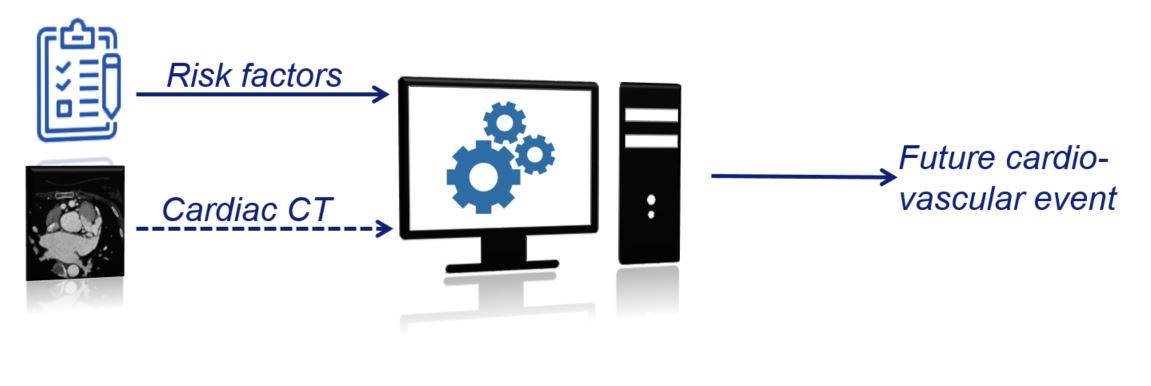About the research topic
The MyDigiTwin is a scientific initiative to develop a platform in which individuals can directly compare their own personal health data with existing records that have been acquired from other studies. This project aims to apply the concept of a digital twin to cardiovascular disease (CVD) in the Netherlands. In recent years, the Dutch government has spearheaded an initiative to centralize an individual’s health data in a digital personal health environment (PHE). In a PHE, all medical records pertaining to an individual are stored in a centralized, cloud-based environment, as opposed to the standard of care where each care facility has their own set of digital records in a sealed-off system. Patients are then able to provide healthcare providers access to their PHE health data. Artificial intelligence (AI)-based algorithms will be used to build a “Digital Twin” model that resembles a digitalized version of each individual’s health. Data obtained from healthcare providers will be combined with self-reported data to generate a personalized score. Then, individuals will be able to check and monitor their health and identify possible risks of various cardiovascular diseases (i.e., coronary heart disease, heart failure and atrial fibrillation). In short, the MyDigiTwin project focuses on the early recognition and prevention of an individual’s CVD by applying ML techniques to big-data available from multiple cohorts. The project consists of 6 private and 8 public partners in various domains (e.g., life science, artificial intelligence, data science, and analysis); Each project member will contribute to the different phases of data wrangling, analysis and modelling of medical data towards the implementation of MyDigiTwin.

Particularly, one of the expected contributions from Erasmus MC is on using machine learning techniques to develop and validate new prediction models of CVD risk and potential treatment effects. To be specific, we will apply deep neural networks (DNNs)-based data-driven technique, so-called deep learning (DL). Modern deep survival models will be extended by considering imaging data along with structured data. The prediction model will be further improved by means of additional novel predictors and longitudinal data; The main goal of our research is to develop a multi-modal DL model used for CVD risk prediction. The developed DL model will be used in the MyDigiTwin platform.

